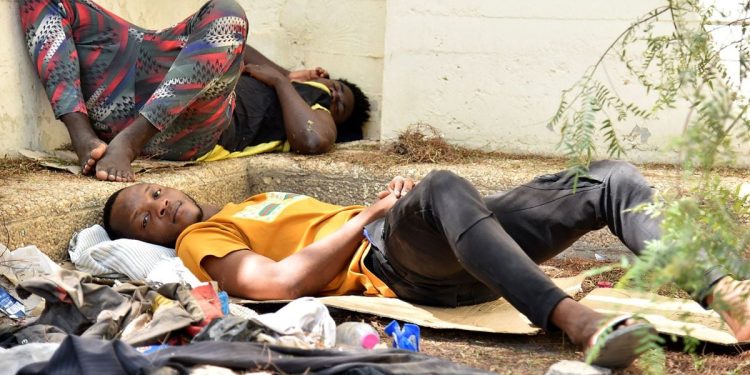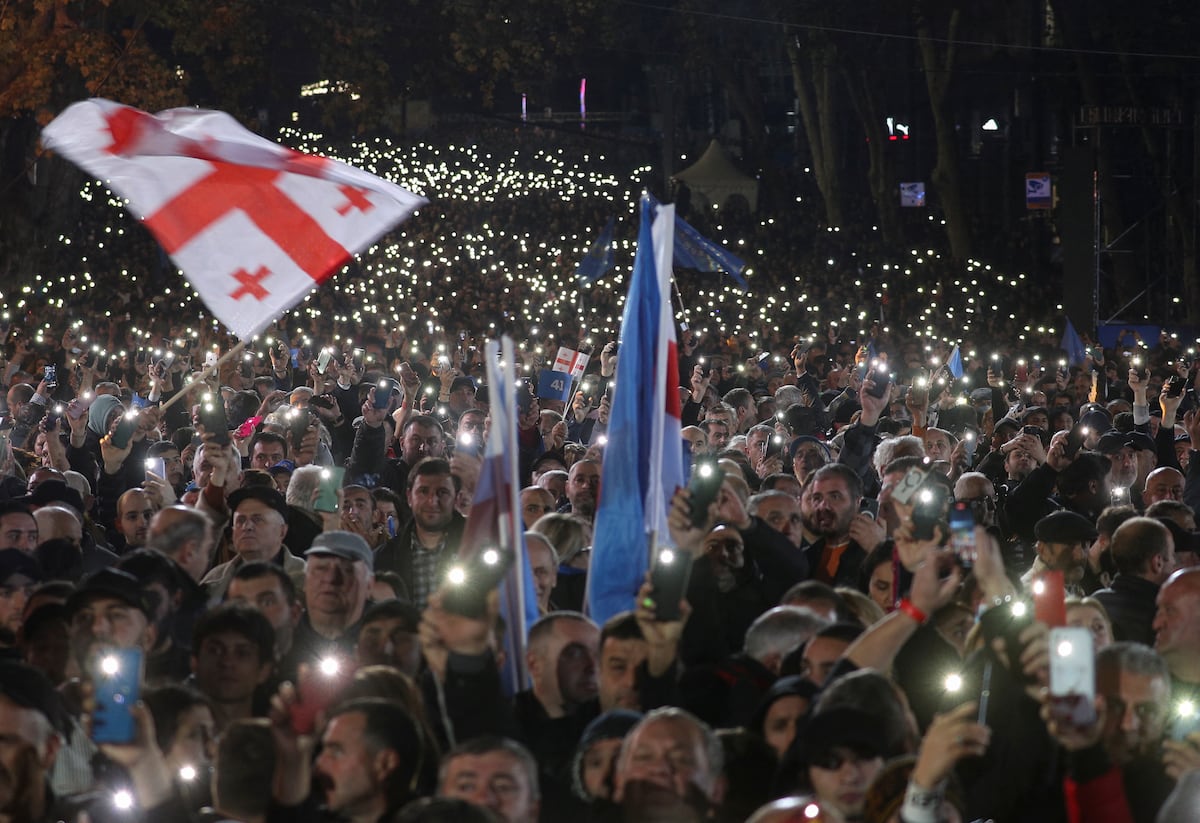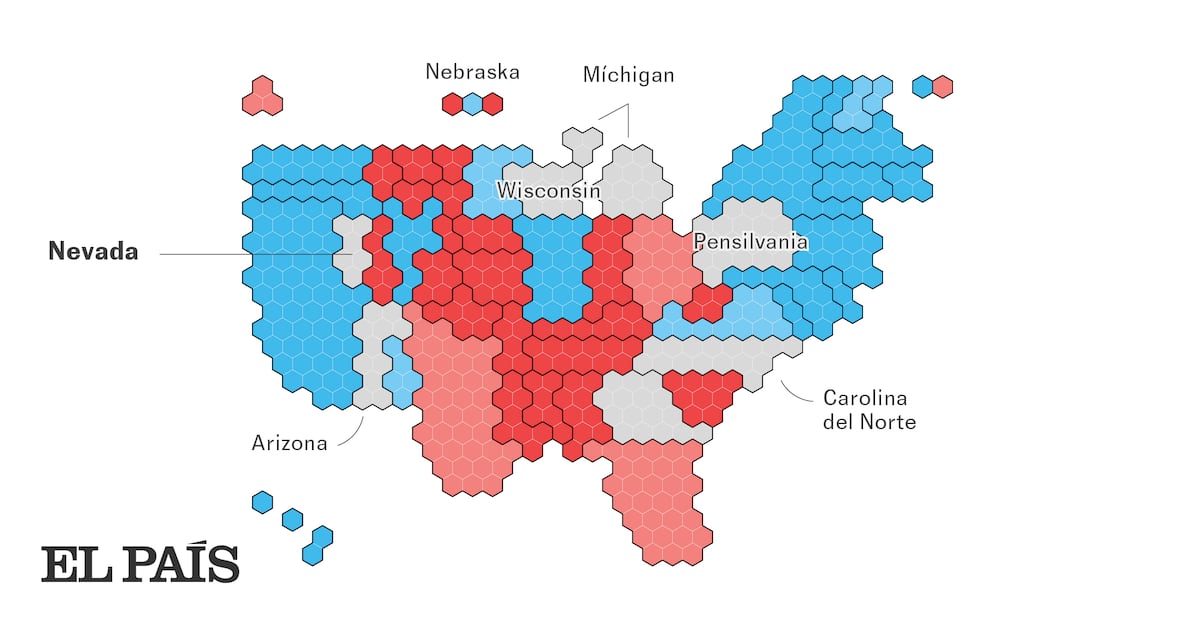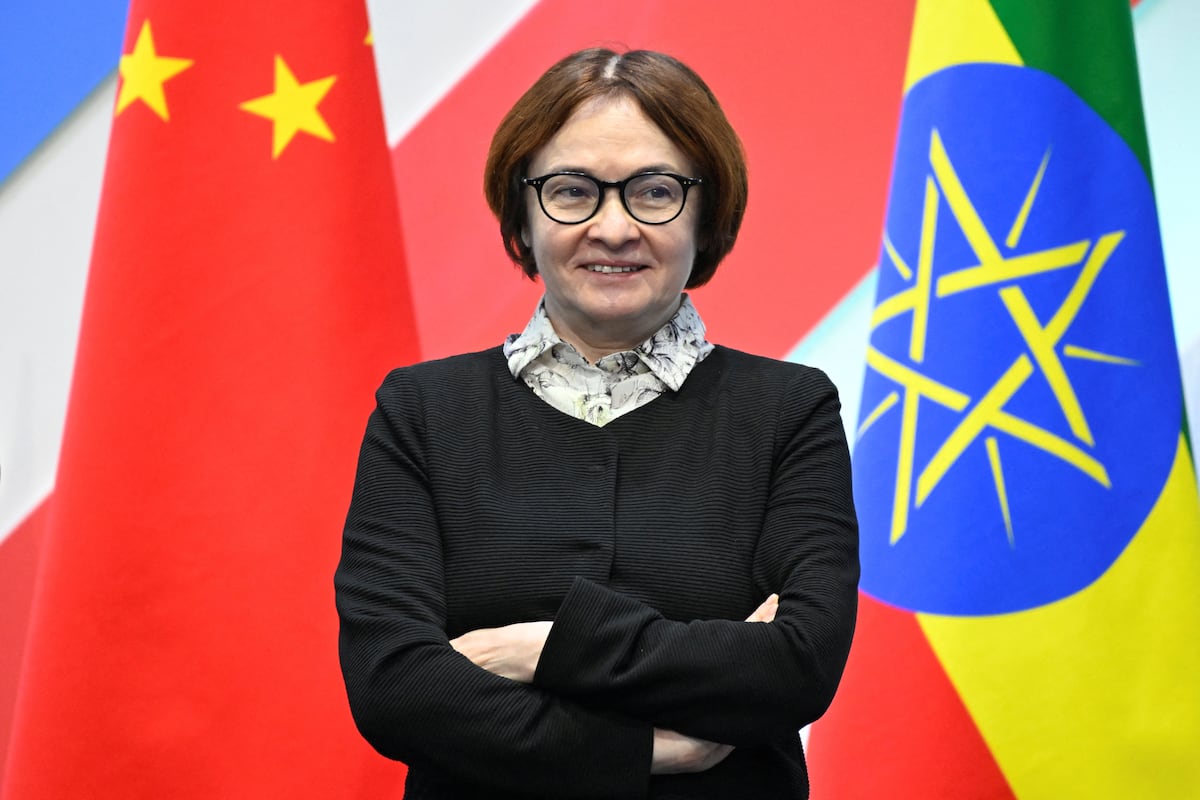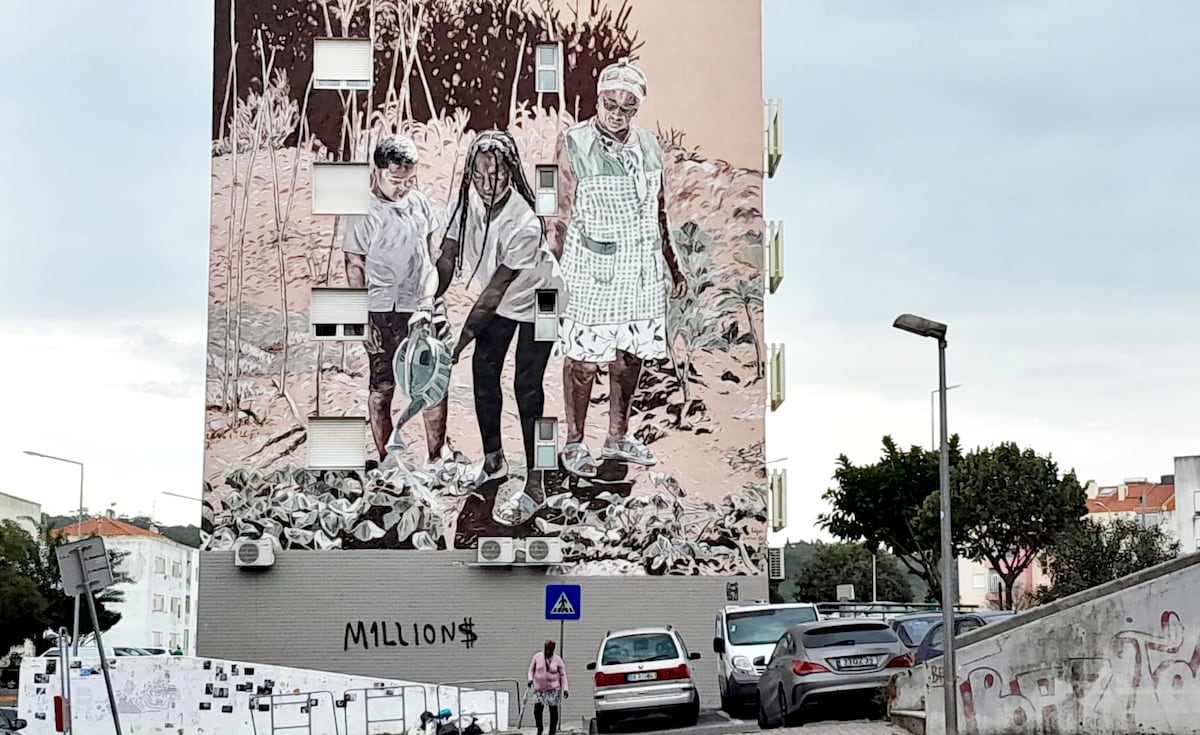Shipwrecks of boats full of migrants leaving the Tunisian coast for Europe have multiplied in recent months. The last of them, which resulted in the death of 41 people near the Italian island of Lampedusa, took place last week, although it was announced on Wednesday. This rise in mortality is a direct consequence of a trend registered since the beginning of this year: Tunisia has become the main Mediterranean port of departure for the migratory route to the European Union. The Maghreb country thus supersedes Libya, which had assumed this role in the last five years.
According to data leaked by the Italian Ministry of the Interior to the publication New Agency, at least 34,761 migrants arrived on the Italian shores from Tunisia during the first six months of the year, more than the 27,859 who had left Libya. This figure almost multiplies by five the data from the same period last year, when migrants from Tunisia did not exceed 7,000. During last July, the transfer of ships leaving the small Mediterranean country accelerated even more, breaking an entire record of arrivals: 20,000 people in a single month.
“A huge number of boats have been setting sail from Tunisia in recent weeks. Just last weekend, some 2,000 people left the country,” confirms Òscar Camps, director of the Catalan NGO Pro Activa Open Arms, who has spent several weeks aboard a rescue ship working in the central Mediterranean in a telephone interview. . The main landing point for migrants is usually the island of Lampedusa, located only about 180 kilometers from the Tunisian city of Sfax, and about 300 from Tripoli, the Libyan capital.
It is estimated that some 90,000 migrants have arrived on the Italian coasts in 2023, a figure that doubles that registered the previous year and that places this country in the lead among recipients within the EU. According to data from the World Organization for Migration (IOM), Italy this year has absorbed more than 65% of migrants who have crossed into Europe irregularly. Thus, for yet another year, the Western Mediterranean route is emerging as the busiest.
Unlike Tunisia, in Libya, especially in the eastern half of the country, measures have been intensified to exercise greater control over migratory flows. As reported by Reuters, the authorities in the eastern region, led by General Khalifa Hafter and who have great autonomy from the government in Tripoli, have recently deported thousands of migrants from sub-Saharan Africa, Bangladesh, Pakistan and Egypt.
DAVID MELERO (EUROPE PRESS)
..
subscribe
The figures of the Italian Government that point to the surprised of Tunisia fit with the estimates of Romdhane Ben Amur, a researcher at the Tunisian Forum for Economic and Social Rights (FTDES), specializing in migration. “Italy does not publicly offer data on the country of departure of the boats, but it does on the nationality of the migrants it has welcomed. And from there, it can be deduced quite reliably that Tunisia has already surpassed Libya as the port of departure for Europe”, says Ben Amour. According to the latest data, the most common nationalities declared this year by migrants to the Italian authorities are Guinean (12%), Ivorian (11%), Egyptian (8%) and Tunisian (7%).
Ben Amur points to two reasons to explain the sudden increase in departures from Tunisia. “First of all, there has been an increase in migrants crossing clandestinely from Algeria, facilitated by the permissiveness of the Algerian police. Many migrants have redirected their way to Tunisia after other routes have been sealed, such as the one to the Canary Islands or the Balkans”, comments the researcher.
Racist attacks after the president’s speech
In addition, the researcher attributes the change in trend to a speech that the Tunisian president, Kais Said, delivered last February before the National Security Council. “Many sub-Saharan migrants who were residing in Tunisia temporarily to work, save and pay for their trip to Europe, decided to speed up their migration project as a result of the wave of racist attacks that Said’s statements provoked,” says Amur. The president then spoke of “a criminal plan” to change the “demographic composition of Tunisia” and replace its Arab and Muslim population with “hordes” of sub-Saharan migrants. The following days, groups of Tunisians dedicated themselves to lynching the black migrants they found on the street with the complicity of the security forces, while many others were expelled from their jobs and homes.
At the beginning of July, a new wave of racist attacks broke out, but this time limited to the city of Sfax, where the largest sub-Saharan migrant community in the country resides. “The president’s visit here stimulated new attacks. In a confrontation a young Tunisian was killed and the atmosphere became more heated. In the days that followed, the police deported more than 1,500 people to the borders with Libya and Algeria,” recalls Franck Yotedje, director of the Sfax-based NGO Africa Intelligence. Without water, without food and without any protection against temperatures of up to 50 degrees, at least twenty of them died of starvation.
The other side of the human drama caused by the appearance of state racism in Tunisia is the notable increase in deaths at sea. Networks of unscrupulous smugglers took advantage of the stampede of migrants in spring to profit by offering them very precarious boats. Of the 2,387 people who died or disappeared this year in the Mediterranean, according to the IOM, more than 950 (40%) correspond to Tunisia. Of these, more than half, 467, took place in the months of March and April. “Recently, some boats made of sheet metal are leaving Sfax that are like paper, they immediately fill with water,” says Camps.
/cloudfront-eu-central-1.images.arcpublishing.com/prisa/6QRIPXON5XKOCHFOTWZLN3Y7L4.jpg)
The director of Pro Activa Open Arms points to a third reason that explains the exodus on the Tunisian coast: the use of migration as a tool to “extort” the EU. “What is happening in Tunisia is scandalous. On the radio frequency, we have heard conversations between Tunisian fishermen and the coast guard that suggest an evident collusion between the two to facilitate the passage of the boats”, affirms the activist, who says that with a drone he easily detected an esplanade near the coast where dozens of people made precarious ships, something that “cannot escape the knowledge of the Tunisian authorities”.
Camps’ speech coincides with a confidential analysis by Frontex on the EU borders to which EL PAÍS has had access, which points out that, on a recurring basis, Tunisian fishing boats would board migrant boats stranded on the high seas and offer to tow them to the vicinity of Lampedusa in exchange for money, in an act similar to “piracy”. In case of rejecting the offer, the fishermen would carry out intimidation maneuvers, creating a strong swell to endanger the precarious stability of the boats.
Renewed interest from Brussels
The rise in migration in Tunisia has sparked renewed interest from the European and Italian authorities in the small North African country. On July 16, the President of the European Commission, Ursula von der Leyen, together with the Prime Ministers of Italy, Giorgia Meloni, and the Netherlands, Mark Rutte, traveled to Tunisia to sign a “strategic partnership” agreement. They want it to become a “model” for the rest of the countries of North Africa. The main component of the pact is cooperation in the control of border flows, for which reason Brussels will grant Tunisia 105 million euros to strengthen its capacities in this area. In addition, the EU will soon provide Tunisia with another 150 million in budget support and promises to add 900 million more conditional on signing a loan with the IMF.
According to several Tunisian analysts, Said was very interested in signing the agreement to get out of the international isolation, especially among Western countries, into which he had plunged after his self-coup in 2021, isolation that intensified after his racist statements in February. In addition, he urgently needs international financial support in the face of the serious financial crisis that the country is going through. In return, Said has offered greater collaboration with the EU on issues such as speeding up the repatriation of irregular Tunisian migrants in Europe. “If the number of boats on the Tunisian coast is growing, it is because Said is still negotiating with the EU. The ranking of the issuing countries varies accordingly. Before it was Türkiye, now it is Tunisia and then it will be Algeria. It is what has to have externalized the borders, ”says Camps.
Follow all the international information onFacebook andTwitteror inour weekly newsletter.
.
.

